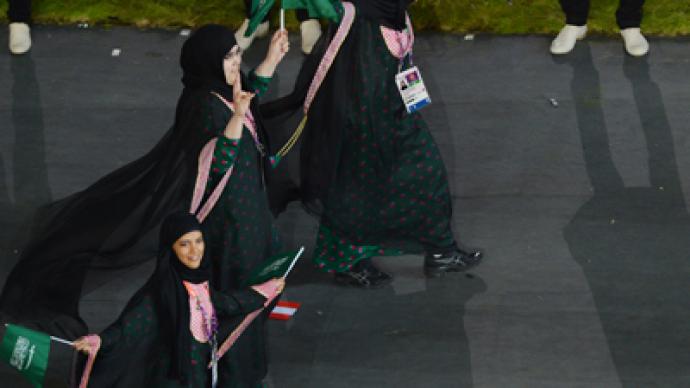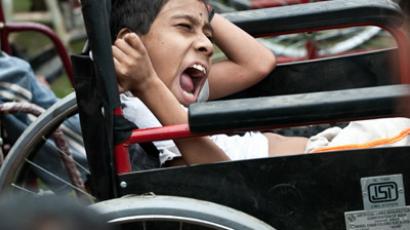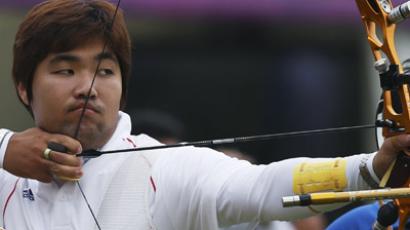Year of the Woman: For first time all Olympic teams include female athletes

This year’s Summer Games have been dubbed ‘Olympics 2012: Year of the Woman’ as for the first time in history women are represented in all participating national teams and comprise a record 45 per cent of all athletes.
The first female Olympic athletes from Saudi Arabia, Brunei and Qatar appeared at the opening ceremony in London on Friday, ending these nations’ longstanding practice of sending male-only teams to the world’s biggest sporting event"This is a major boost for gender equality," International Olympic Committee president, Jacques Rogge, said addressing 60,000 spectators and thousands of athletes at the opening ceremony. Saudi Arabia’s Wodjan Ali Seraj Abdulrahim Shaherkani and Sarah Attar walked alongside their male fellow team members, wearing traditional hijabs. They will represent the kingdom in the 78kg category in judo and 800 meters respectively. Brunei has broken its no-women tradition by sending the runner Maziah Mahusin. “I feel very proud of myself, and I feel honored,” she said. “It’s kind of like being an ambassador for my country.”
However, the International Judo Federation has ruled that Shaherkani will have to fight without a hijab – a decision that is likely to spark controversy back home in the ultra-conservative kingdom. Powerful clerics there denounce women participating in sports, saying it goes against their natural role.Still, the very fact that now all 204 national teams feature female athletes is a significant advance for international women’s rights. Only 16 years ago, at the 1996 Olympics in Atlanta, 26 countries did not have women on their teams.“You know, it’s a human right. Women have the right to practise sport, they want to practise, they love sport, they are attracted to sport.And we must make sure that barriers are broken down,” Jacques Rogge remarked earlier this month after Saudi Arabia announced that it would be sending women to the Olympics in London.“It is such a huge honor and I hope that it can really make some big strides over there to get more involved in sport,” Saudi Arabia’s Sarah Attar said, according to a release by the IOC.“I definitely think that my participation in these Olympic Games can increase women’s participation in sports in general,” the 17-year-old athlete said.“I can only hope for the best for them and that we can really get some good strides going for women in the Olympics further,” she added.













